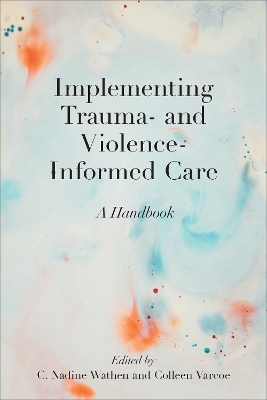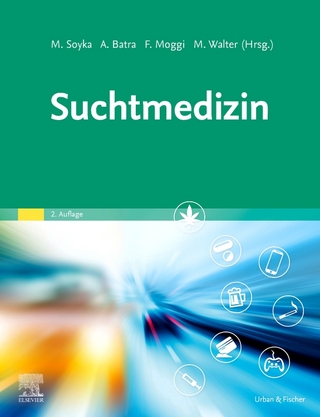
Implementing Trauma- and Violence-Informed Care
University of Toronto Press (Verlag)
978-1-4875-2925-3 (ISBN)
The need for health and social services to be trauma- and violence-informed has never been so pressing. In the wake of COVID-19, racial violence intensified and violence against women spiked globally. Mental health for many is worsening, while the ongoing toxic drug overdose crisis provides horrendous evidence of the impact of trauma, violence, stigma, and social inequities. Service providers across sectors are increasingly impacted by these dynamics and, without supportive environments, are burning out.
Implementing Trauma- and Violence-Informed Care aims to support health and social service organizations and providers to create environments, policies, and practices to mitigate the harms of structural and interpersonal violence and the trauma that ensues. The book is organized around case examples of trauma- and violence-informed care (TVIC) implementation and impact in diverse settings, providing how-to guidance for getting started, sustaining momentum, and assessing outcomes. The book describes the importance of TVIC at multiple levels, from individual practices to organizational protocols and system-level policies, emphasizing TVIC’s alignment with system transformation goals. In doing so, the book presents TVIC as a call to action to improve service user experiences and outcomes, efficient and effective use of resources, and the health and well-being of staff, while addressing and reducing health and social inequities.
C. Nadine Wathen is a professor and Canada Research Chair in Mobilizing Knowledge on Gender-Based Violence in the Arthur Labatt Family School of Nursing at Western University. Colleen Varcoe is a professor emeritus in the School of Nursing at the University of British Columbia.
Illustrations
Tables
Foreword
Preface
Acknowledgments
Introduction
Abbreviations
Section 1: The Case for Trauma- and Violence-Informed Care
1.1: Trauma, Violence, Health and Well-Being
1.2: Integrating Understanding of Structural and Systemic Violence into TVIC
1.3: Leveraging Implicit Bias Recognition and Management Curricula to Advance Trauma- and Violence-Informed Care
1.4: Vicarious Trauma, Moral Distress, and Compassion Fatigue/Burnout through a Structural Lens
1.5: The Principles of Trauma- and Violence-Informed Care
Section 2: TVIC Implementation Case Studies
2.1: Taking Organizational-Level Action: Creating a Context for Implementing TVIC in Health Care Settings
2.2: Trauma- and Violence-Informed Mental Health Interventions: Our Work with Indigenous Men
2.3: Population Health and Trauma-and-Violence Informed Approaches: A Leadership Role for Public Health
2.4: The Trauma- and Violence-Informed Classroom, K-12
2.5: Developing and Implementing Trauma- and Violence-Informed Physical Activity Programming
2.6: Becoming Trauma and Violence Informed in Policing
Section 3: Cutting Across Contexts
3.1: Cultural Safety and Trauma- and Violence-Informed Care: Integrated Services for Indigenous Peoples
3.2: The Nexus of Trauma, Violence, Chronic Pain, Substance Use, and Stigma
3.3: Enhancing Public Understanding: Shifting Narratives on Trauma, Violence, and Mental Health
3.4: Emerging Considerations for Trauma and Violence-Informed Care: Lessons from Post-Genocide Rwanda
3.5: Thinking through Gaps and Support Needs: What Newcomer and Migrant Worker Interventions Teach Us about Trauma and Violence Informed Care
Section 4: Bringing it All Together
4.1: How Organizations Take Up TVIC
4.2: Strategies, Tools, and Resources for Integrating TVIC across Settings
4.3: Development of a Core Trauma- & Violence-Informed Care e-Learning Curriculum
4.4: Thinking Structurally: Using TVIC to Reimagine Service Systems
4.5: But Does It Work? Evaluating TVIC Initiatives
Conclusion
List of Contributors
Index
| Erscheinungsdatum | 10.07.2023 |
|---|---|
| Zusatzinfo | 3 b&w illustrations, 12 b&w figures, 10 b&w tables |
| Verlagsort | Toronto |
| Sprache | englisch |
| Maße | 155 x 235 mm |
| Gewicht | 650 g |
| Themenwelt | Geisteswissenschaften ► Psychologie |
| Medizin / Pharmazie ► Medizinische Fachgebiete ► Suchtkrankheiten | |
| Sozialwissenschaften ► Pädagogik ► Sozialpädagogik | |
| Sozialwissenschaften ► Soziologie | |
| ISBN-10 | 1-4875-2925-2 / 1487529252 |
| ISBN-13 | 978-1-4875-2925-3 / 9781487529253 |
| Zustand | Neuware |
| Haben Sie eine Frage zum Produkt? |
aus dem Bereich


